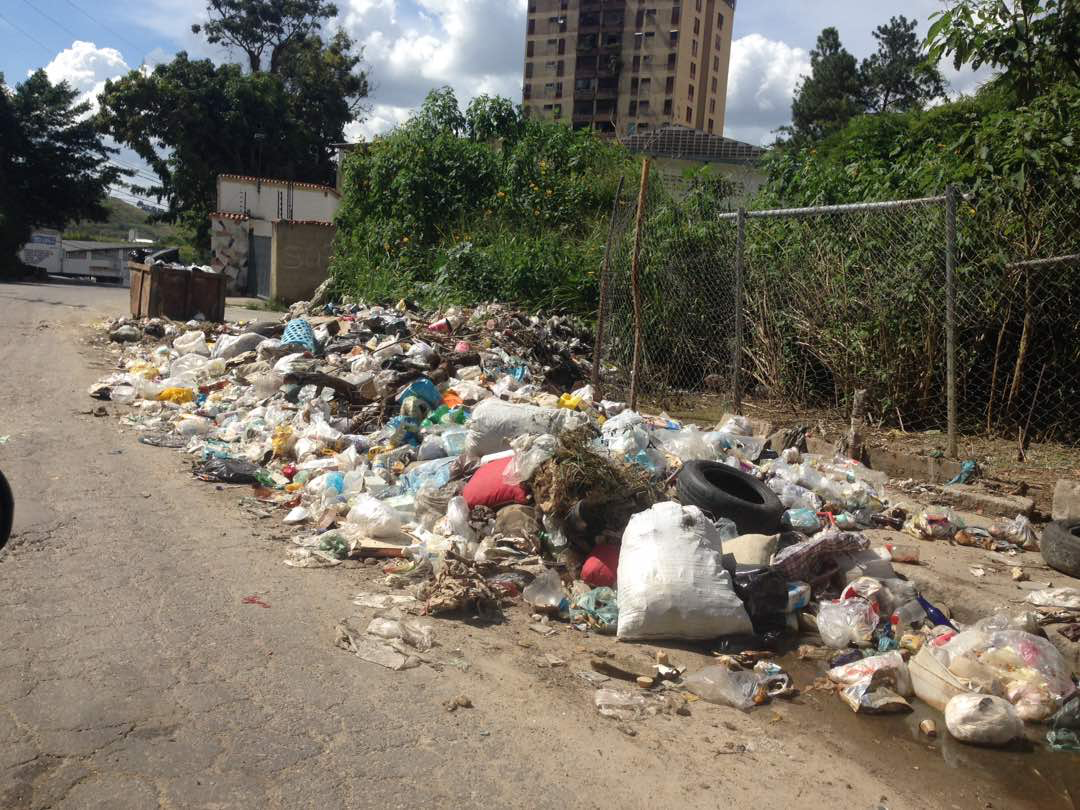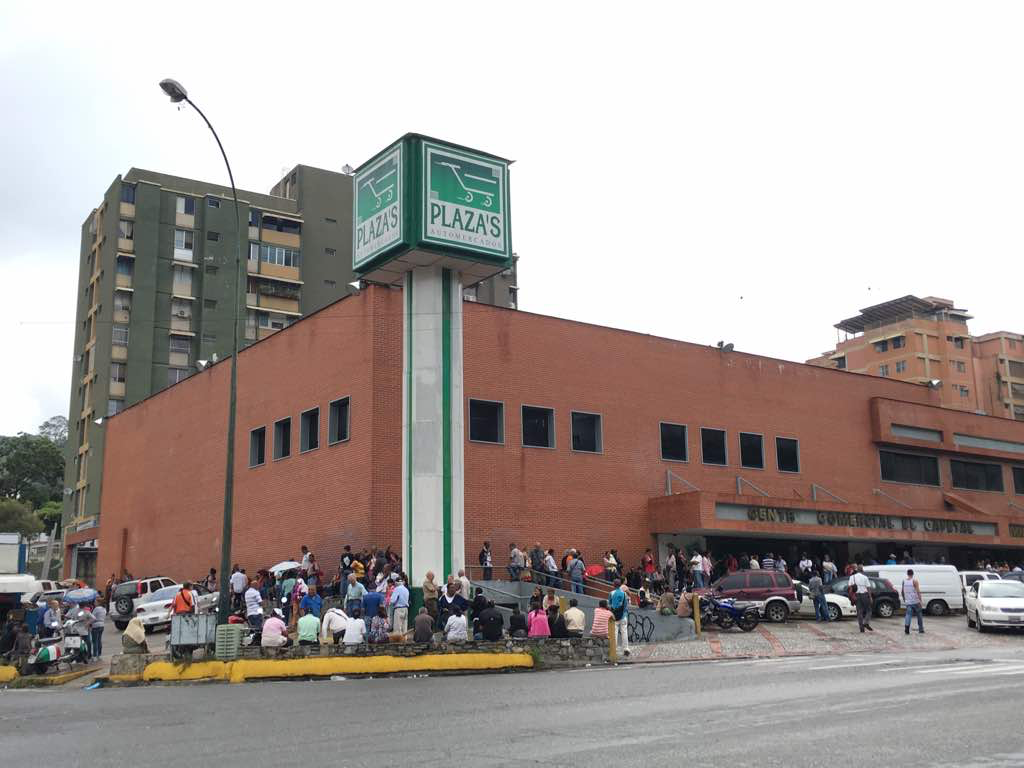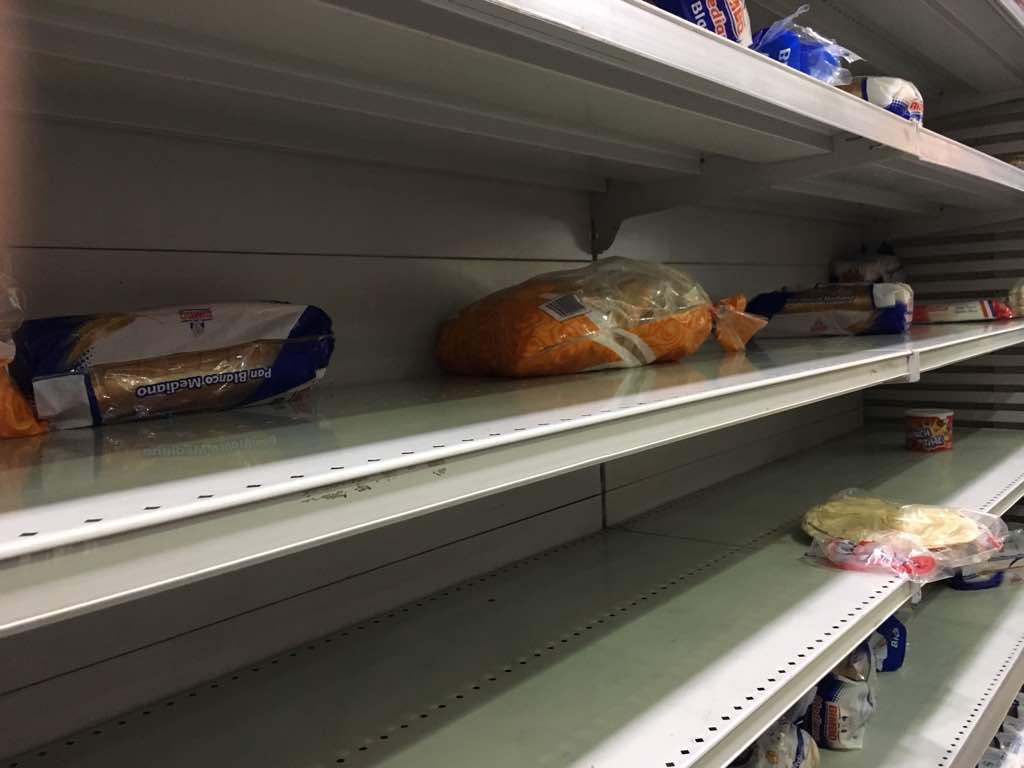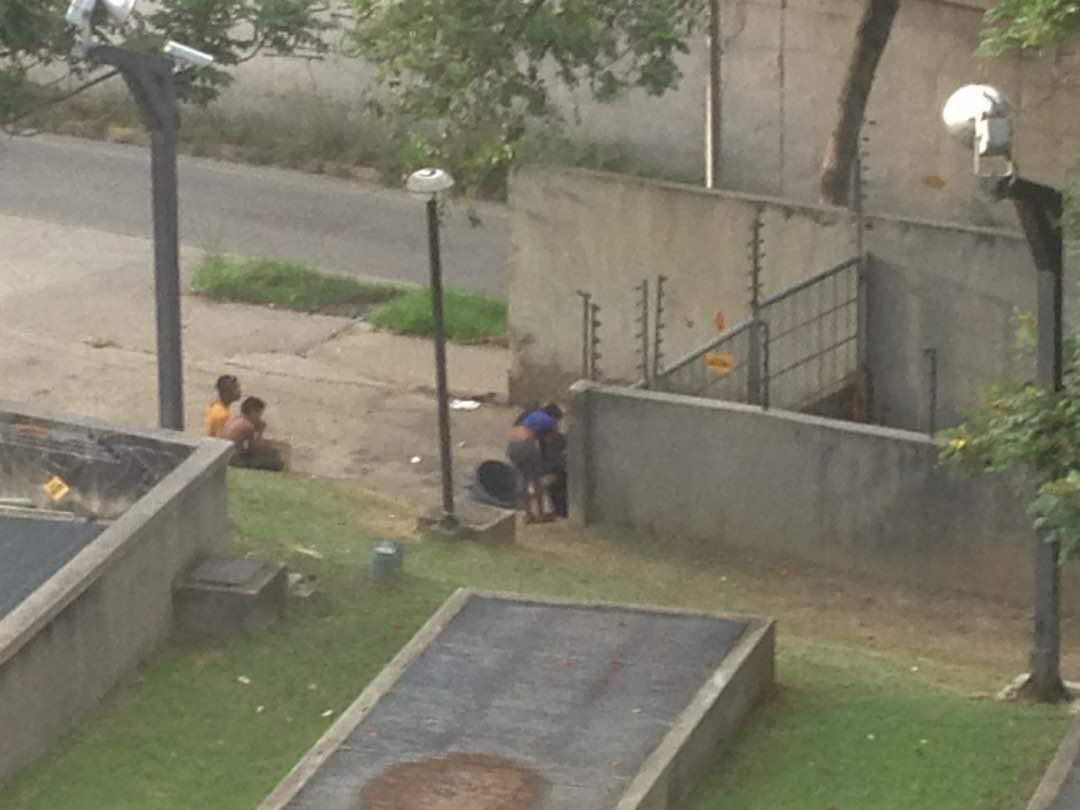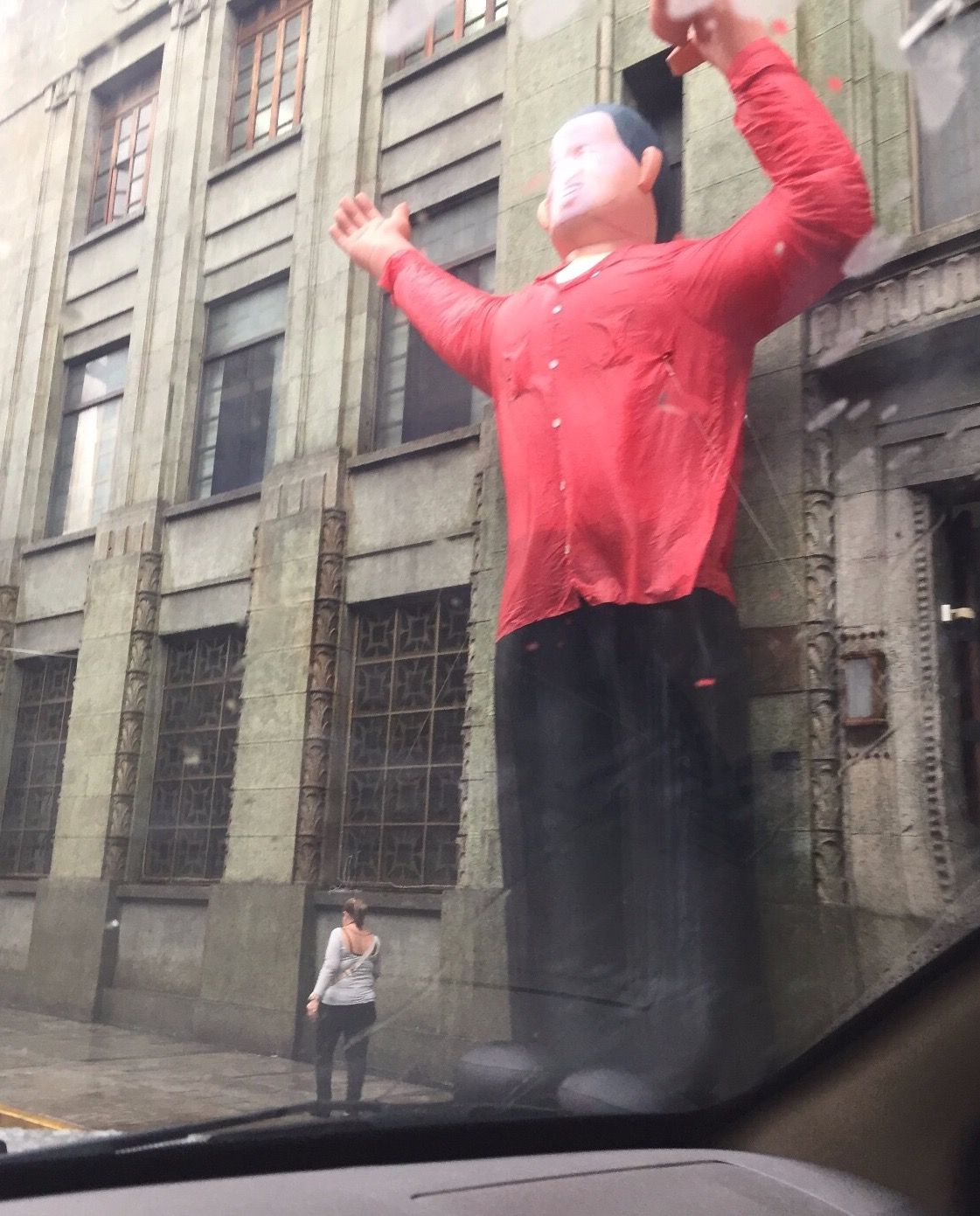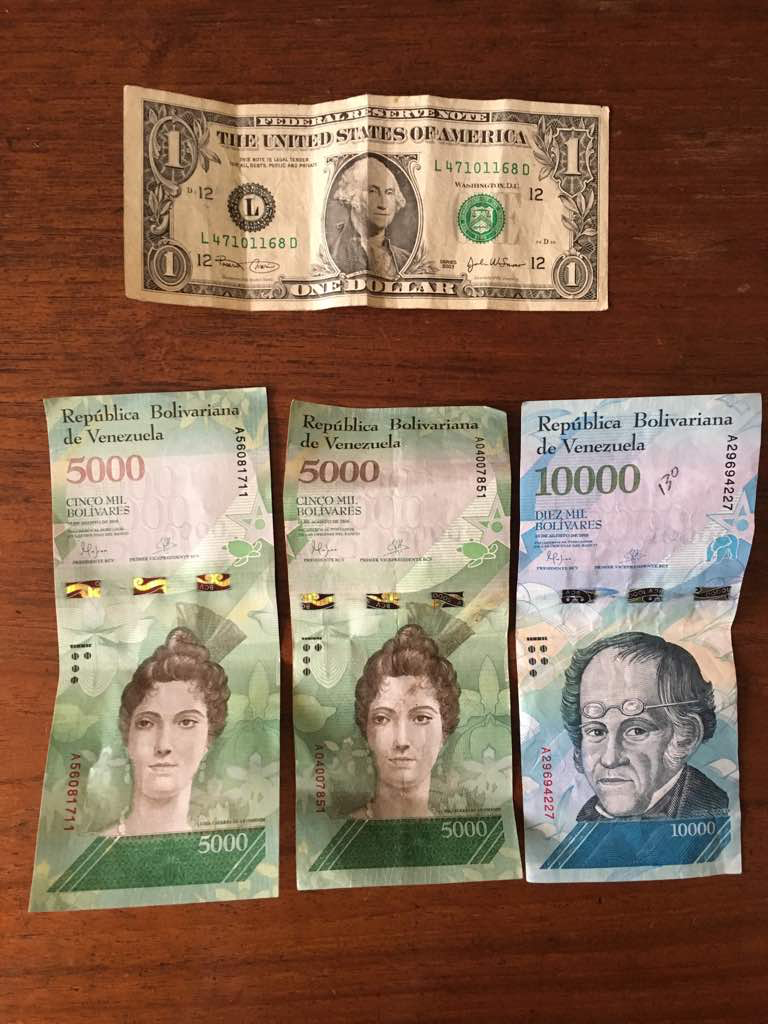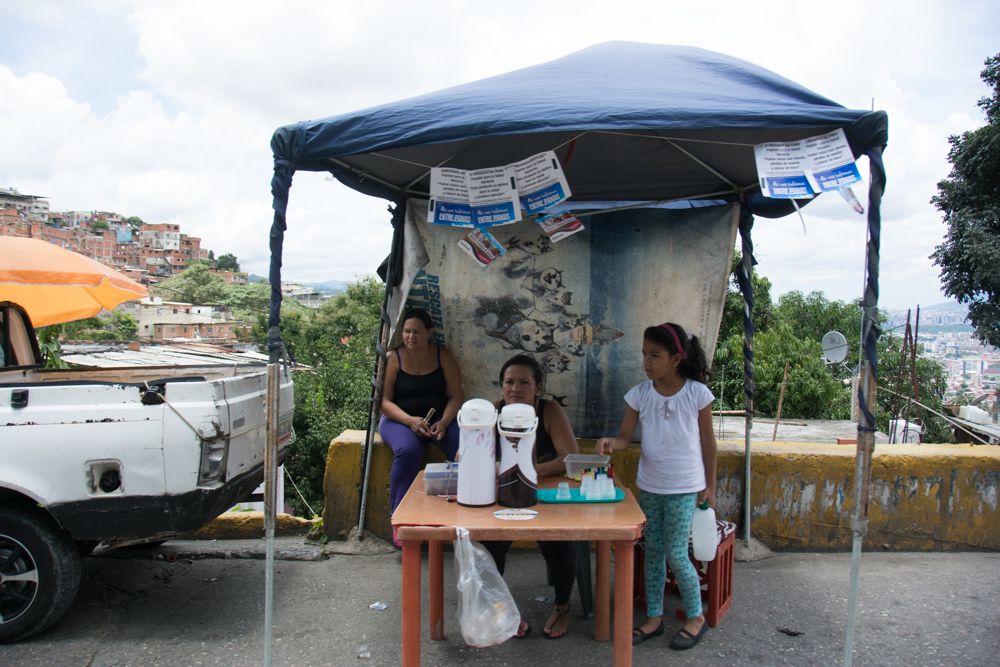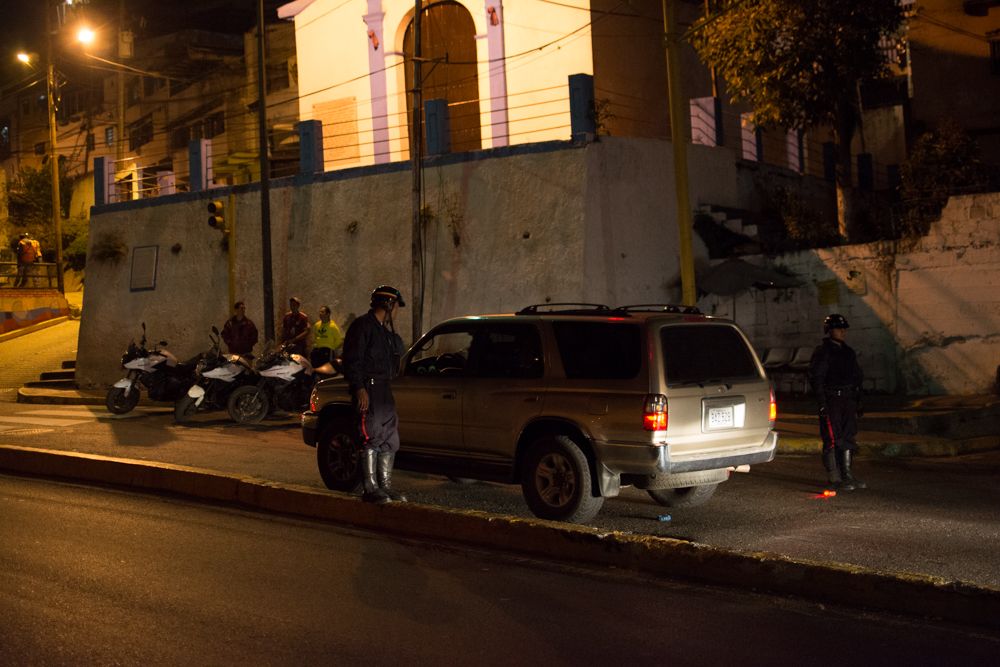A current problem in Caracas is the excessive amount of trash on the streets. The neighborhoods are constantly fighting with the waste from the zone. The scene above is only a small evidence of this widespread problem.
One of the reasons behind this situation is that there is not a proper system for waste disposal. The landfills are already hitting their maximum capacity, while the city keeps expanding.
Recently, it has become common for people to look in the trash for food or anything that they can sell—contributing to the spread of disease.
Given the shortage of basic goods like food or medicine, it is common to find long lines outside supermarkets and pharmacies. People will wait from between a half hour to four hours.
Many pharmacies have created a system that only allows you to buy on certain days depending on your national ID number. For example, if your ID ends in 1 or 2 you can only go on Mondays to buy products such as milk, rice, deodorant, sugar, toilette paper, shampoo, and even birth control.
The products arrive, if at all, in short amounts on random days. Nobody knows what they will be able to buy whenever they go. Therefore, many have to go to several establishments to find a specific product.
The picture above is a common sight for Venezuelans. A shortage of food has led to empty supermarkets. It is odd to find any place that does not has an empty shelf.
The shortage crisis is not only felt by the supermarkets. Pharmacies run low in health care products, and many medicines are impossible to find. Repair shops have almost no supplies, and therefore many vehicles have stopped circulating because owners can’t find the replacement pieces. Shortages also exist in clothing stores.
Venezuelans live in constant uncertainty because they don’t know if they’ll find what they need. Until now, the government has not laid out a plan to fix the shortages. Its economic policies have been directed to take over national production, control the prices of the market, and restrict the exchange of foreign currency.
The picture above shows a group of children who live by themselves in Chuao, Caracas. These children can be found asking for money on the streets nearby. On rainy days, one can expect to see them under the bridge next to the highway. People who work close by told us that the group is growing bigger as the days go by.
“They started by being a group of eight,” one of the workers told us. “Last time I counted, there were 26.”
Groups of homeless kids are a frequent sight in the country’s capital. The continued shortage of food and the high inflation rate have made acquiring food difficult for many. The NGO Caritas Venezuela reported in April 2017 that 54 percent of the children under five years old are suffering from some level of malnutrition.
This is a figure of the late President Hugo Chávez in Caracas’s Downtown. Government propaganda can be found throughout the whole city—whether it is graffiti on walls, posters, statues, billboards on the road, TV ads, or inflatable paraphernalia.
Chávez began his presidency on 1998, and through the years became the center figure of the “Chavism” movement. His political discourse focused on undermining capitalism, fighting the ‘economic war’ of the high classes, and empowering the poor. He referred to his ideology as the "Socialism of the 21st century."
After his death in March 2013, Nicolás Maduro became president, yet much of his government propaganda still features President Chávez.
Bolívares (Bs) is the national currency of Venezuela. To the left there are two bills of 5000 Bs (around $0.23), which is the third to last bill with higher value. The bill to the right, 10000 Bs (around $.46) is the one second to last with the highest. These three bills make roughly a dollar by the black-market exchange rate of September 9, 2017. The highest bill has a value of 20000 Bs (less than one dollar value).
Venezuelans use the black market because the government has a strict exchange control regime for foreign currency, making it almost impossible for anyone to acquire USD at the official rate. In 2017, a new platform called DICOM was adopted. It is as an auction system used by the government to assign dollars. The first auction took place on May 25, 2017; 15 auctions were held in the subsequent four months.
People often calculate the black-market values of foreign currency using a page ‘Dollar Today.’ It keeps track of the exchange rate day by day. Rather than the official values, these alternative values are the ones that regulate many prices in the Venezuelan economy.
These women are part of the informal economy—it is not rare to find them in the middle of the highway where they can take advantage of the city traffic. They also set up shop outside of shopping centers, in subway stations, or in any place with high transit.
Even though it is an illegal practice, many citizens take advantage of the service or products these sellers provide such as snacks, individual cigarettes, or mobile credit. People on their way to work or truck drivers on the highway, more often than not, welcome the easy access to coffee.
The PNB (Policía Nacional Bolivariana) and the GNB (Guardia Nacional Bolivariana) are the State’s forces used to keep the order and protect the citizens. Their presence can be felt through the whole city. There are many security check points, especially at night, where the PNB and GNB are posted.
When passing through a security check point, the driver must slow the vehicle and roll the windows down. The GNB or PNB usually stop people (seemingly at random) to check their driver’s license and insurance documentation—some might be asked to open up the doors of the car.
It is not uncommon to be stopped by any of the two forces. They can also be found on the supermarkets handing out the scarce resources or supervising the waiting lines to enter the establishment. Their presence in the streets and their overreaching actions are what Venezuelans deal with on a daily basis.
